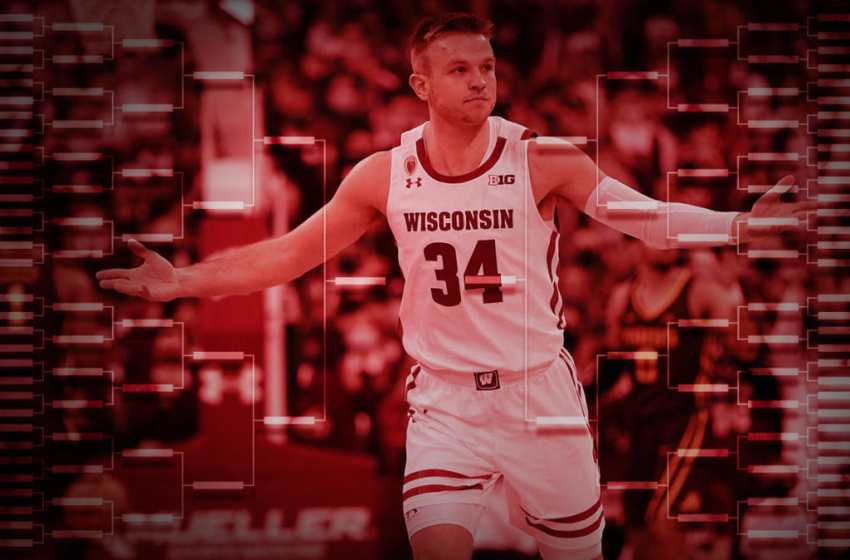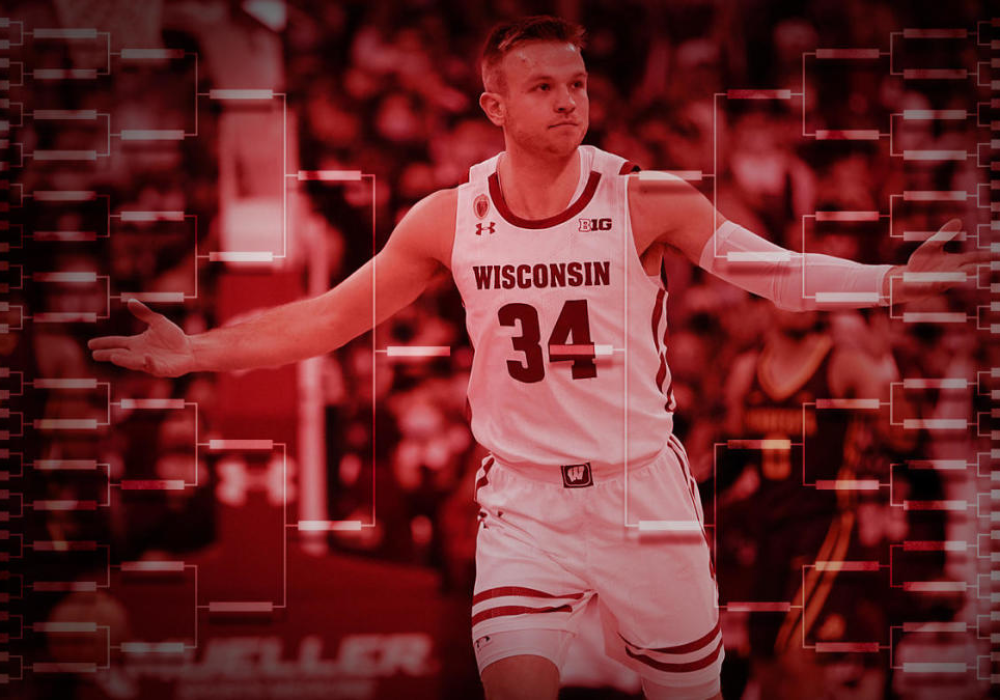The Big12/SEC Challenge is a fun nonconference event in the midst of conference play and sometimes can help teams which need to boost their tournament resumes.
For example, Kentucky picked up its best win so far and arguably the best win any team has this season in the Wildcats’ demolition of Kansas on Saturday at Phog Allen Fieldhouse. The Wildcats’ resume is light on quality wins, but their two best wins were blowouts. Their other good win came at home against Tennessee, a No. 6 seed. Arguably, Kentucky’s third best win is North Carolina and they have a loss to Notre Dame, so it is hard to seed them higher than third at the moment, but as the SEC schedule picks up, there will be more chances to move up.
As for Kansas, the loss dropped them off the top line of the bracket. Big Ten leader Wisconsin, which got a tough battle from Minnesota on Sunday, has replaced the Jayhawks for now as the fourth No. 1 seed in the bracket.
Bracketology top seeds
Check out Palm’s latest bracket, full field of 68 and all the teams on the bubble on the Bracketology hub.
Another SEC team that picked up a good win was Alabama, which beat Baylor at home. Good luck to the selection committee with trying to seed this team, which is No. 5 in the updated bracket. And good luck to everyone trying to fill out a bracket because there is a good chance the Tide will mess up a lot of brackets.
Alabama has shown to be good enough to win the entire tournament, as Saturday’s win over No.1 seed Baylor and a win early in the season against No.1 seed Gonzaga would attest. The Crimson Tide have also shown that they could go out early, as this week’s loss at Georgia and an earlier one at Missouri would indicate.
Some data matter, some doesn’t
As we approach the home stretch of the season, this is a good time for a refresher on what is criteria in the selection process and what is not. Keep in mind that this is a subjective process guided by objective data, but some data that people suggest is relevant simply is not.
Relevant
Strength of schedule: The committee is largely judging teams by their strength of schedule and how they performed against that schedule. Non-conference schedule strength is particularly important for teams near the cut-line of the at-large pool. A team or two gets left out almost every season because of a very poor non-conference schedule.
Quality of wins and losses: This is what the quadrants are about, but it is never as simple as looking at the record in each quadrant. Not all Quad 1 wins or losses are of the same quality, for example. The committee also looks at each team’s record against the field and teams under consideration.
Head-to-head records: This does not matter a lot, but it is also not nothing. It is more of a tiebreaker. Game location can matter with this also. For example, a team that won a game at home against another may not find that win is especially important in comparing the two teams.
Things you cannot measure with a computer: The committee is aware of every team’s injuries, COVID problems, scheduling issues, travel problems, etc. However, they cannot speculate on the results of games that were not played. They also cannot assume a team would have won a game it lost if it was at full strength, or ignore that game. Losses are losses. A team’s resume has to be good enough to get it selected. After that, these other factors can impact seeding, but even then, not dramatically.
Not relevant
Other metrics: Rankings like KenPom, Sagarin, etc. actually appeared on the selection committee’s team sheets for a handful of years, but with the introduction of the NET, those no longer appear. They were never more than marginal criteria to begin with, but now, everything is driven strictly by the NET.
NET ranking: That said, a team’s own NET ranking does not matter. The committee never bases a decision in any way by which team has a better NET ranking. The NET is used to categorize the quality of the games on a team’s schedule. It determines in which quadrant each game belongs. The NET ranking of a team’s opponents is MUCH more important than its own ranking.
Conference performance: Even though conference records and what place a team is in the conference are on the team sheets, the committee judges teams based on their entire season, not just one part of it. Conference record and especially conference placement do not hold any weight.













